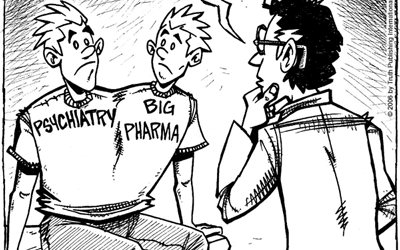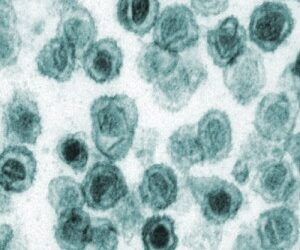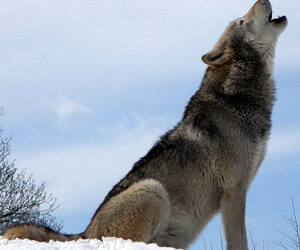Researchers are figuring out how addiction rewires the brain. The goal is to eventually be able to rewire an addicted brain back to the way it was, before the drugs, the cravings, and the self-destruction.
Julie Genser

Siamese Twins: Psychiatry & Big Pharma
This comic is just another way to further describe the Big Pharma / psychiatry relationship, using a familiar medical anomaly. Siamese Twins are often joined at the hip, just like drug companies and modern psychiatry.
From Chronic Fatigue to Lyme: Medically Unexplained No More
by Pamela Weintraub | Over the past year, forces at the highest reaches of medicine have made ever stronger efforts to burden the sick, diseased, and infected with psychiatric labels, consigning them to often mind-numbing psych meds and untreated infection
Breaking News: retrovirus linked to CFS / ME
In a new groundbreaking study, retrovirus XMRV has been linked to chronic fatigue syndrome / myalgic encephalomyelitis.
Beginners Guide to Healthy Organic Gardening
Organic gardening is not as difficult as many beginning gardeners believe it is. Quite simply it means you are going to plant your garden without using synthetic fertilizers or chemical pesticides.
Brain Plasticity
Can the brain rewire itself to overcome damage or removal? The Discovery Channel tells the story of Jody Miller, who had half her brain removed at three years of age.
What is brain plasticity?
Brain plasticity refers to the fact that the human brain is capable of forming new neuronal pathways throughout one’s lifetime.
What Doctors Are Really Thinking
You ever wonder what doctors are really thinking when they’re diagnosing disease? It’s rare for a doctor to admit, “I don’t know.” More often that not, it seems, they just make up …
Walk to Fight Diabetes…Literally
It turns out that when you “Walk to Fight Diabetes,” that you’re actually walking off the calories the American Diabetes Association has loaded on you at the event in the form of a free lunch.
Loss of “apex” predators causing major ecological disruptions
There has been a significant shift in the last 200 years in the percentage of “apex” predators (e.g., wolves, lions, sharks) as compared to the smaller “mesopredators” like coyotes and baboons.










